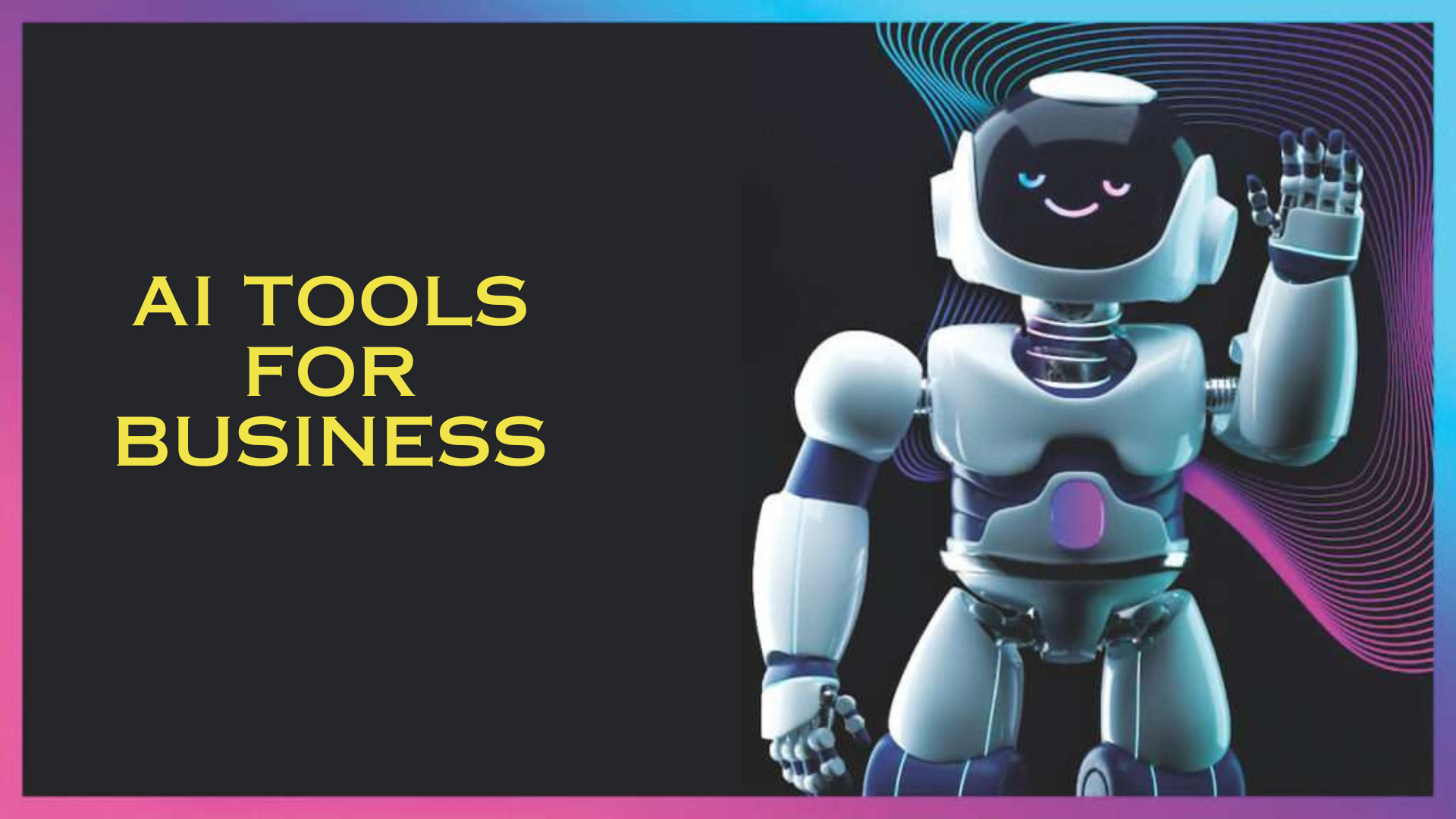Best AI Tools for Business in 2024
In the fast-paced world of business, staying ahead of the curve is crucial for success. As we step into 2024, artificial intelligence (AI) continues to be a driving force, transforming the way businesses operate. This article aims to provide a comprehensive guide to the best AI tools for businesses available in 2024, empowering organizations to harness the power of AI to enhance efficiency, streamline operations, and make informed decisions.
Table of Contents
The Evolution of AI in Business:
To understand the significance of AI tools in 2024, it’s essential to trace the evolution of AI in business. Over the past decade, AI has evolved from a promising concept to a practical and indispensable tool for various industries. The advancements in machine learning, natural language processing, and computer vision have paved the way for a new era of intelligent business solutions.
The Role of AI in Business Operations:
Before delving into the best AI tools, it’s crucial to understand the diverse roles AI plays in business operations. From automating repetitive tasks to providing data-driven insights, AI has become a strategic asset for organizations. Key areas where AI makes a substantial impact include:

Automation and Process Optimization:
- Tools like UiPath and Automation Anywhere leverage AI to automate routine tasks, freeing up human resources for more strategic activities.
- Process mining tools such as Celonis analyze and optimize workflows, identifying bottlenecks and inefficiencies.
Data Analytics and Business Intelligence:
- Power BI and Tableau use AI algorithms to analyze vast datasets, providing actionable insights for better decision-making.
- IBM Watson Analytics enables businesses to uncover patterns and trends in data, facilitating predictive analytics.
Customer Relationship Management (CRM):
- Salesforce Einstein and HubSpot’s AI-powered features enhance customer relationship management by predicting customer behavior and automating personalized interactions.
Chatbots and Virtual Assistants:
- AI-driven chatbots like Intercom and Drift offer real-time customer support, improving the user experience and efficiency.
- Virtual assistants such as Google’s Duplex and Amazon Alexa for Business enhance productivity by performing tasks through natural language commands.
The Best AI Tools for Business in 2024:
Now, let’s discuss the leading AI tools for business that are creating significant impacts on the business landscape in 2024.

1. OpenAI’s GPT-4:
As the latest iteration of the Generative Pre-trained Transformer (GPT) series, GPT-4 is a powerhouse in natural language processing. Businesses can leverage GPT-4 for content creation, language translation, and sentiment analysis, revolutionizing communication strategies.
2. IBM Watson Studio:
Watson Studio offers a comprehensive environment for data scientists, allowing them to build, deploy, and manage AI models. Its AutoAI feature accelerates model development, making it an invaluable tool for organizations looking to harness the power of AI in their data-driven initiatives.
3. Microsoft Azure Cognitive Services:
Azure Cognitive Services provides a suite of AI tools, including computer vision, speech recognition, and language understanding. Businesses can integrate these services into their applications to enable features such as image recognition, voice commands, and natural language understanding.
4. Google Cloud AI Platform:
Google’s AI Platform offers a scalable and flexible infrastructure for machine learning workflows. It supports the end-to-end machine learning lifecycle, from data preparation to model deployment, making it a preferred choice for organizations leveraging machine learning at scale.
5. Salesforce Einstein:
Salesforce Einstein brings AI tools capabilities directly to the Salesforce CRM platform. It analyzes customer data to provide insights, automate tasks, and deliver personalized experiences. With features like predictive lead scoring and automated email campaigns, Einstein enhances sales and marketing effectiveness.
6. UiPath:
UiPath is a leading robotic process automation (RPA) tool that uses AI to automate repetitive and rule-based tasks. Its AI fabric enables organizations to integrate machine learning models into automation workflows, enhancing the adaptability and intelligence of RPA processes.
7. Celonis:
Celonis is a process mining tool that uses AI to analyze and visualize business processes. By uncovering inefficiencies and bottlenecks, Celonis empowers businesses to optimize their workflows for increased efficiency and cost savings.
8. TensorFlow 2.0:
TensorFlow remains a powerhouse in the field of deep learning. With the release of TensorFlow 2.0, the framework becomes more user-friendly and efficient. Businesses can leverage TensorFlow for tasks such as image recognition, natural language processing, and predictive modeling.
9. Amazon SageMaker:
SageMaker is a fully managed service from Amazon Web Services (AWS) that simplifies the process of building, training, and deploying machine learning models at scale. Its built-in algorithms and model hosting capabilities make it a comprehensive solution for businesses embracing machine learning.
10. ChatGPT:
Building on the success of its predecessors, ChatGPT is a conversational AI model that excels in natural language understanding. Businesses can integrate ChatGPT into their applications, websites, or customer support systems to provide seamless and intelligent interactions with users.
Future Trends in AI for Business:
As we look ahead, several trends are poised to shape the future of AI in business:

Explainable AI (XAI):
The demand for AI systems that can explain their decision-making processes is growing. Explainable AI ensures transparency and accountability, especially in industries with regulatory requirements.
AI-Powered Cybersecurity:
The use of AI in cybersecurity is evolving with systems that can autonomously detect and respond to cyber threats. AI tools like Darktrace use machine learning to identify anomalous behavior and prevent cyberattacks.
Edge AI:
Edge computing combined with AI, known as edge AI, is gaining traction. This approach enables AI models to run directly on edge devices, reducing latency and enhancing real-time decision-making capabilities.
AI in Human Resources:
AI tools in HR are becoming more sophisticated, assisting in talent acquisition, employee engagement, and performance management. Predictive analytics powered by AI help organizations make data-driven decisions in workforce management.
AI Ethics and Governance:
As AI continues to play a crucial role in decision-making, there is an increasing emphasis on ethical considerations. Businesses are adopting AI ethics frameworks to ensure responsible and fair use of AI technologies.
Conclusion:
In conclusion, the landscape of AI tools for business in 2024 is dynamic and full of possibilities. As organizations continue to embrace AI to drive innovation and efficiency, staying informed about the latest tools and trends is essential. The tools mentioned in this article represent just a snapshot of the diverse AI ecosystem, and businesses should carefully evaluate their specific needs before integrating AI into their operations. The future promises even more advancements, and businesses that strategically leverage AI will undoubtedly gain a competitive edge in the evolving marketplace.

